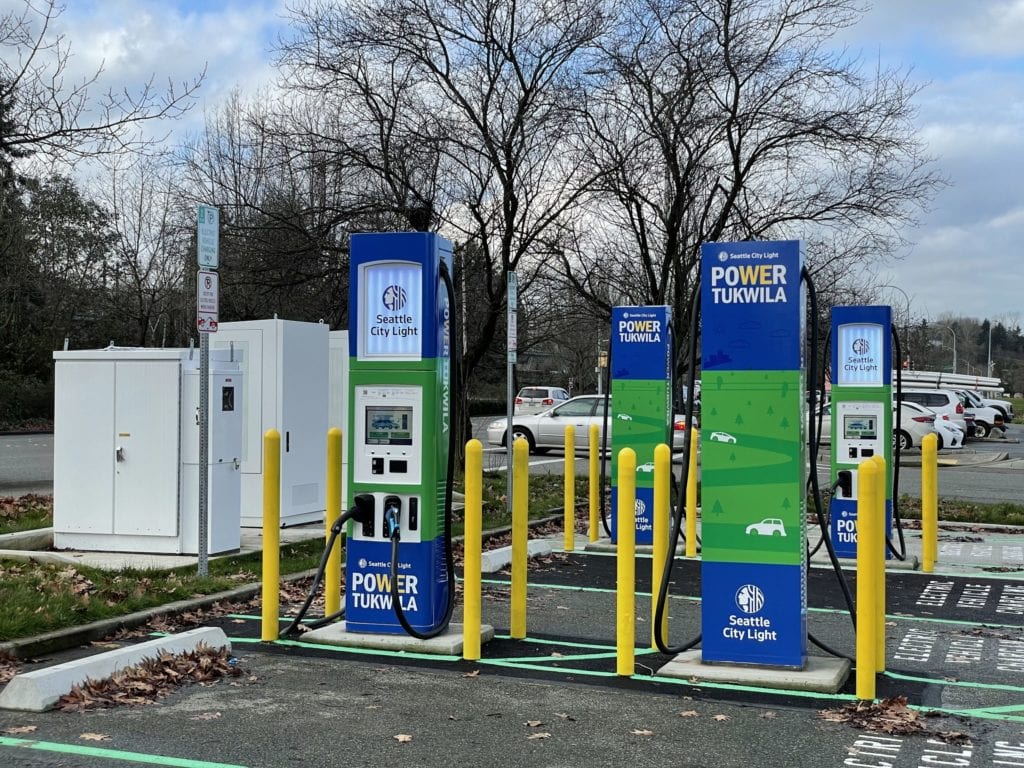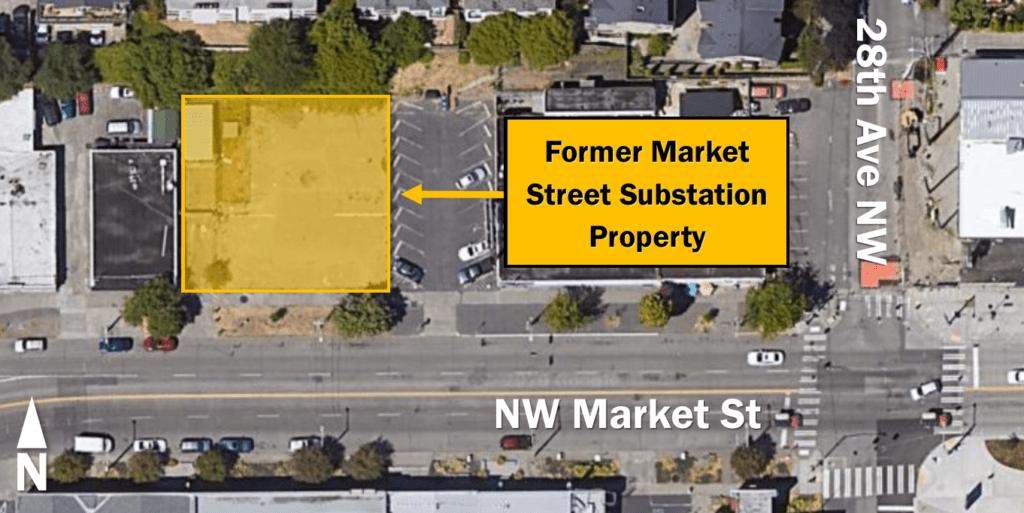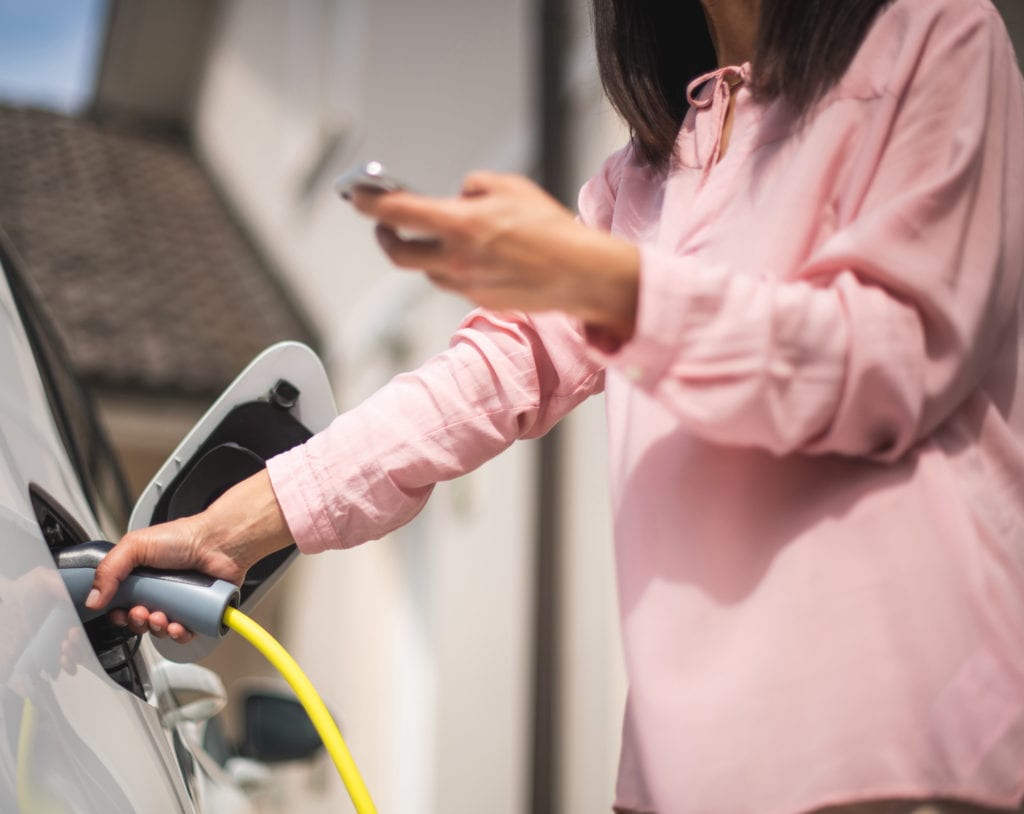
Last week the City of Seattle released its plan toward a clean and equitable transportation system in the comprehensive Transportation Electrification Blueprint. The Blueprint outlines how the City will reduce climate emissions and air pollution, increase electric mobility options, and create a pipeline of green jobs and workforce diversity. City Light is committed to building the foundation to support transportation electrification across the utility’s service area.
Transportation electrification is an ongoing and long-term strategic priority for City Light. City Light conducted in-depth analysis and engaged with community leaders to shape our Transportation Electrification Strategic Investment Plan (TESIP), which was approved by the Seattle City Council in October 2020. We engaged in conversations with representatives from over 50 groups to identify transportation electrification investment priorities in the development of the TESIP. The resulting plan lays out the priorities for City Light’s transportation electrification efforts and details initial milestones we will achieve as we invest in the following key sectors: public transit; commercial, government, and nonprofit fleets; and personal mobility.
Here are a few examples of how City Light is (and will be) supporting the electrification of various modes of transportation, ultimately helping to reduce emissions across the region.

Establishing Local and Regional Partnerships
City Light has established partnerships with other government agencies, communities, and private companies to implement key projects and innovative pilots in its priority investment areas. Accessible electrified public transit was considered a top priority for both community leaders and stakeholder groups. Electrifying buses will benefit communities that rely most on public transit and will reduce air and noise pollution where impacts are greatest.
City Light will build upon these existing commitments to develop future offerings with the goal of supporting equitable electric transportation for all. City Light is working with key partners like King County Metro and Washington State Ferries to study, plan for, and build the necessary electrical infrastructure to support public transit electrification.

Unveiling More City Light Public EV Fast Chargers
City Light is powering six new utility-owned electric vehicle (EV) charging sites, bringing the total number to 16 EV fast chargers available across our service area. The most recent location opened in Tukwila in January. The publicly accessible stations are part of a utility initiative to deliver community-focused transportation electrification solutions that meet customer needs, reduce carbon emissions, and decrease air pollution. Sited in one of City Light’s franchise cities, the Tukwila location is our first public infrastructure site opened outside of Seattle city limits.
Learn more about City Light’s public EV fast charging program on our website.

Market Street Make-Ready EV Charging Lot
Earlier this year, City Light announced its plans to use the location of the former Market Street Substation in Ballard as a “make-ready” electric vehicle charging site with a new parking lot and electrical infrastructure. City Light will lease the site to two third-party electric vehicle service providers (EVSPs). The EVSPs, to be determined through a competitive process, will install their own public charging infrastructure and operate their chargers on this site.
Work on this project will begin in late summer 2021. To learn more, visit our project page.

Time-of-Day Rate Pilots
City Light recently launched two Time-of-Day (TOD) Rate Pilots, the Residential TOD Rate Pilot and the Commercial Charging Rate Pilot. These pilots introduce a limited number of City Light customers to a new billing model based on when they use electricity during the day, encouraging off-peak vehicle charging for residential and commercial customers. Under TOD rate billing, participants can save money on their electric bills by charging their vehicles during “off-peak” hours (such as 12-6 a.m.) rather than during the highest-cost “peak period” (5-9 p.m.). In addition to helping fleet owners and public charging providers, the Commercial Charging Rate Pilot will also benefit transit agency partners as they transition to battery electric buses, allowing them to save money on fuel expenses and maintenance.
The rate pilots will run from October 2020 through December 2022 or when opt-in TOD rates become available to all customers. At the time of this article, enrollment for the residential pilot program is now closed, but enrollment for the commercial pilot program is open through December 2021. Contact SCL_BusinessServices@seattle.gov for more information.
This is just a snapshot of how City Light is powering our community today. Find out how we are planning to power tomorrow by visiting the Future of Energy section on our website.